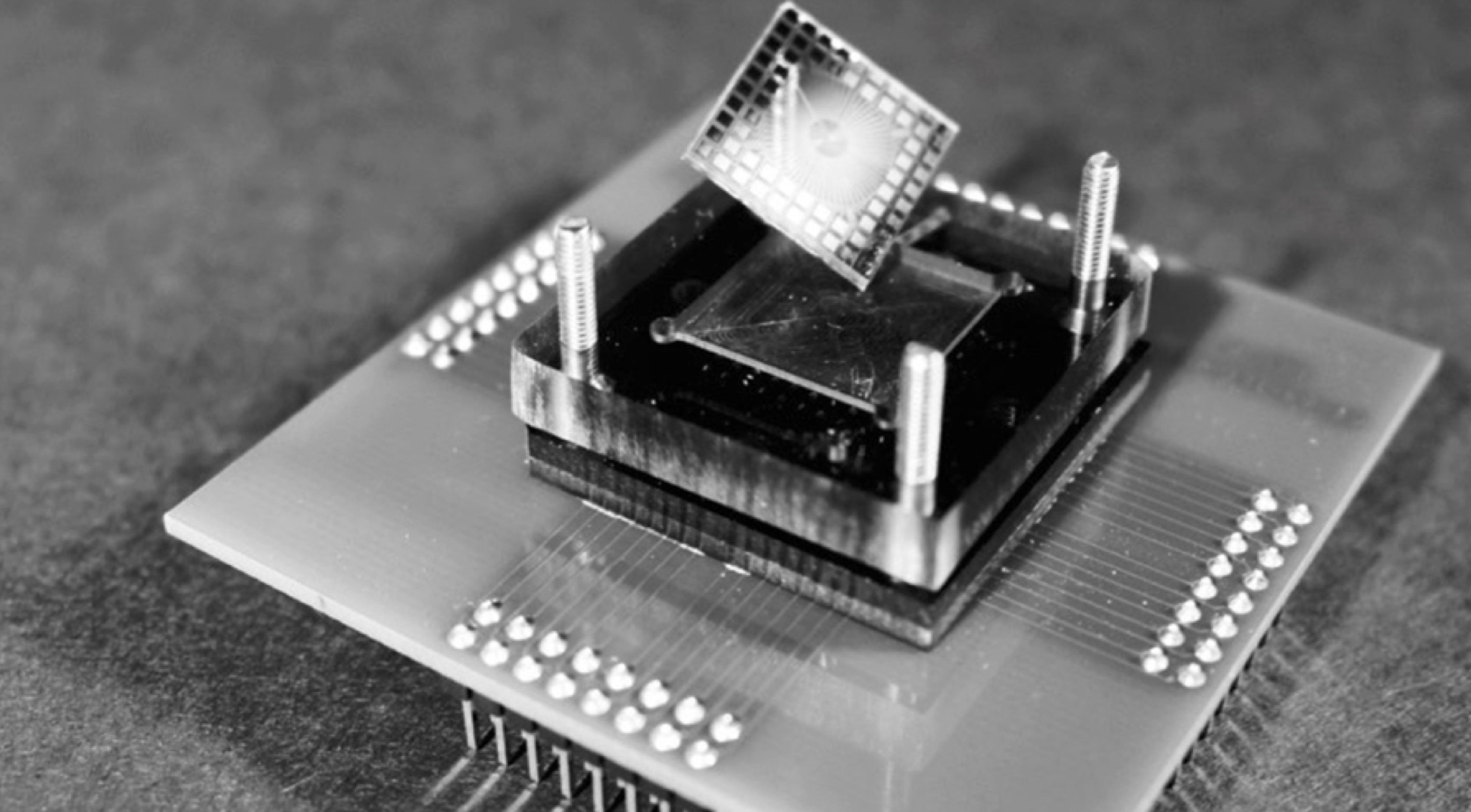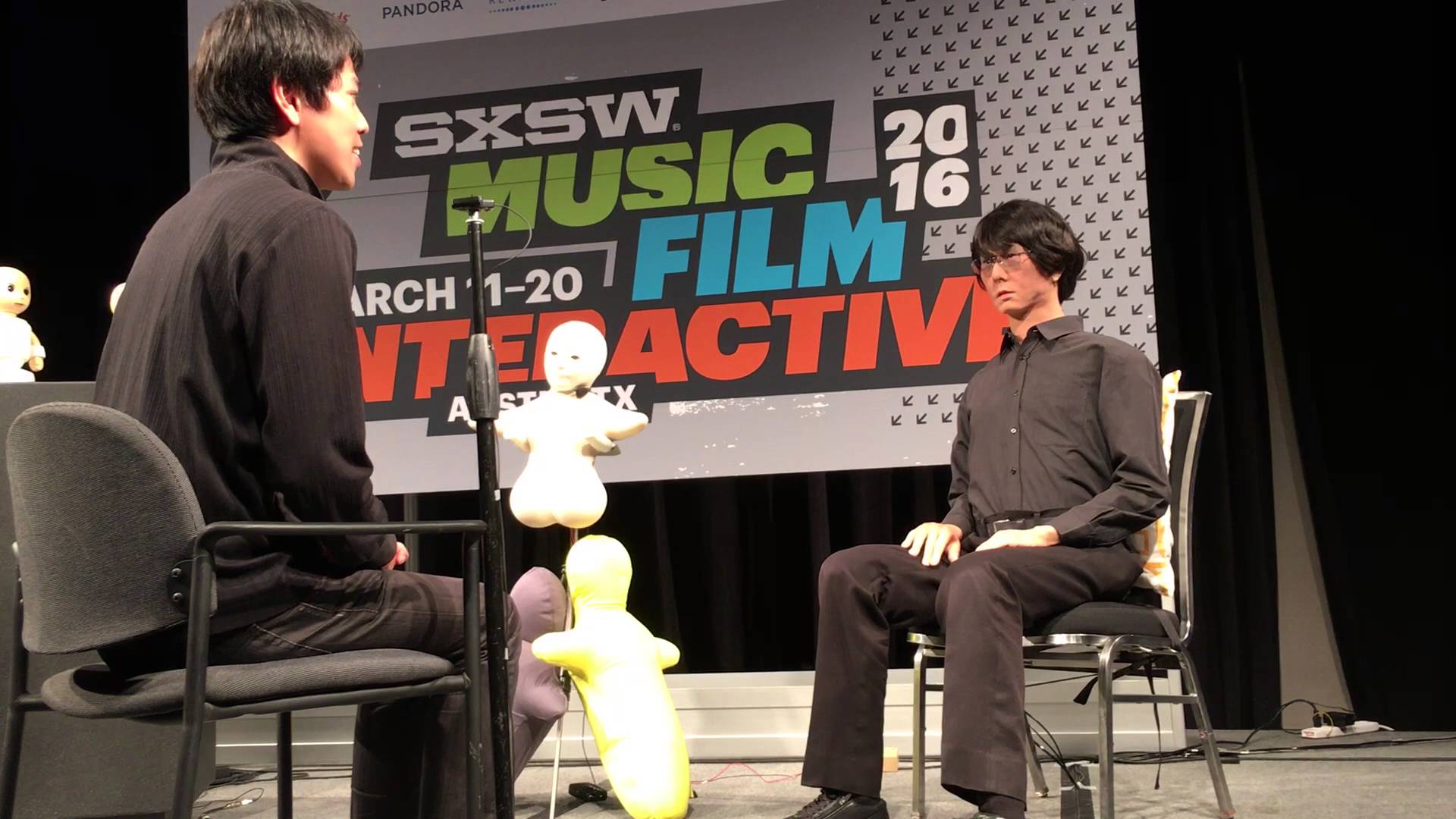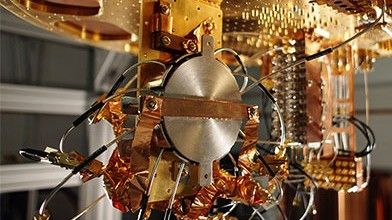Archive for the ‘computing’ category: Page 816
Mar 26, 2016
Physicists demonstrate a quantum Fredkin gate
Posted by Shailesh Prasad in categories: computing, quantum physics
Researchers from Griffith University and the University of Queensland have overcome one of the key challenges to quantum computing by simplifying a complex quantum logic operation. They demonstrated this by experimentally realising a challenging circuit—the quantum Fredkin gate—for the first time.
“The allure of quantum computers is the unparalleled processing power that they provide compared to current technology,” said Dr Raj Patel from Griffith’s Centre for Quantum Dynamics.
“Much like our everyday computer, the brains of a quantum computer consist of chains of logic gates, although quantum logic gates harness quantum phenomena.”
Mar 25, 2016
Unlocking the gates to quantum computing
Posted by Karen Hurst in categories: computing, quantum physics
Researchers from Griffith University and the University of Queensland have overcome one of the key challenges to quantum computing by simplifying a complex quantum logic operation. They demonstrated this by experimentally realising a challenging circuit — the quantum Fredkin gate — for the first time.
“The allure of quantum computers is the unparalleled processing power that they provide compared to current technology,” said Dr Raj Patel from Griffith’s Centre for Quantum Dynamics.
“Much like our everyday computer, the brains of a quantum computer consist of chains of logic gates, although quantum logic gates harness quantum phenomena.”
Continue reading “Unlocking the gates to quantum computing” »
Mar 25, 2016
The Race Is On to Control Artificial Intelligence, and Tech’s Future
Posted by Julius Garcia in categories: computing, robotics/AI
Amazon, Google, IBM and Microsoft are using high salaries and games pitting humans against computers to try to claim the standard on which all companies will build their A.I. technology.
Mar 24, 2016
A Japanese AI Wrote a Novel, Almost Wins Literary Award
Posted by Sean Cusack in categories: computing, robotics/AI
I had thought my job was safe from automation—a computer couldn’t possibly replicate the complex creativity of human language in writing or piece together a coherent story. I may have been wrong. Authors beware, because an AI-written novel just made it past the first round of screening for a national literary prize in Japan.
The novel this program co-authored is titled, The Day A Computer Writes A Novel. It was entered into a writing contest for the Hoshi Shinichi Literary Award. The contest has been open to non-human applicants in years prior, however, this was the first year the award committee received submissions from an AI. Out of the 1,450 submissions, 11 were at least partially written by a program.
Here’s a except from the novel to give you an idea as to what human contestants were up against:
Continue reading “A Japanese AI Wrote a Novel, Almost Wins Literary Award” »
Mar 24, 2016
Virtual reality devices are the next generation of computing, IDC says
Posted by Karen Hurst in categories: computing, virtual reality, wearables
BOSTON — When evaluating wearables, IT can’t leave out augmented and virtual reality devices, which are poised to have a major effect on the enterprise.
Mar 24, 2016
Quantum computing breakthrough paves way for ultra-powerful machines
Posted by Andreas Matt in categories: computing, information science, quantum physics
A crucial hurdle in the development of ultra-powerful quantum computers has been overcome through the development of the world’s first programmable system that can be scaled.
Researchers at the University of Maryland College Park built a quantum computer module that can be linked to other modules to perform simultaneous quantum algorithms.
“Quantum computers can solve certain problems more efficiently than any possible conventional computer,” states a paper published this week that details the researchers’ findings. “Small quantum algorithms have been demonstrated in multiple quantum computing platforms, many specifically tailored to hardware to implement a particular algorithm or execute a limited number of computational paths.
Continue reading “Quantum computing breakthrough paves way for ultra-powerful machines” »
Mar 23, 2016
Neurons on a chip let drones smell bombs over a kilometer away
Posted by Shailesh Prasad in categories: computing, drones, neuroscience

Neurons still remain the most powerful piece of computation machinery on the face of the planet. More to the point, nobody throws up their hands in despair when a screwdriver removes a flathead screw better than their fingernail can, and yet the parallel is an apt one. The circuitry of the human brain has not been honed by evolution to be especially good at playing the game of Go, any more than evolution has fine-tuned our fingernails for removing screws.
Which is not to say there is no room for surprise in today’s world of rapidly advancing technological achievement. What is more impressive, however, is when computers exhibit greater skill than humans at tasks evolution has been perfecting for millions of years like exercising a sense of smell. And yet such advancements are taking place right beneath our noses, metaphorically speaking.
Continue reading “Neurons on a chip let drones smell bombs over a kilometer away” »
Mar 22, 2016
What Do These Robots Mean For The Future Of Sex?
Posted by Sean Brazell in categories: computing, robotics/AI, sex

https://youtube.com/watch?v=a_mYvSVG3QY
For those unfamiliar, SXSW is a week-long, trendy, if not seriously geeky festival of film and culture, panels and discussions. This year, one of the strangest – and either most disturbing or most compelling, depending on where you stand – talks was delivered by Hiroshi Ishiguro, a Japanese inventor and roboticist. The Osaka University professor was speaking about human-like androids and what roles they might fill within society in the near future. Ishiguro discussed his greatest and most marvellous creation to date: a “Geminoid” (robot in his own likeness) whose human appearance has been deftly created through with a plastic skull, a metal skeleton and silicon skin – and is controlled by an external computer. It would be hard, at a glance, to tell the two apart. In fact, the Geminoid held an autonomous conversation in Japanese, on stage, in front of an audience of hundreds.
Geminoid is not Ishiguro’s first uncannily human robot. In 2005, he developed a female android named Repliee Q1Expo, telling the BBC, “I have developed many robots before, but I soon realised the importance of its appearance. A human-like appearance gives a robot a strong feeling of presence. Repliee Q1Expo can interact with people. It can respond to people touching it. It’s very satisfying.”
Continue reading “What Do These Robots Mean For The Future Of Sex?” »
Mar 21, 2016
Smart 3D modeling lets you mess with faces in videos
Posted by Shailesh Prasad in categories: computing, entertainment
Have you ever wanted to mess with a video by making its cast say things they never would on camera? You might get that chance. Researchers have built a face detection system that lets you impose your facial expressions on people in videos. The software uses an off-the-shelf webcam to create a 3D model of your face in real time, and distorts it to fit the facial details in the target footage. The result, as you’ll see below, is eerily authentic-looking: you can have a dead-serious Vladimir Putin make funny faces, or Donald Trump blab when he’d otherwise stay silent.
This isn’t about to reach software you can buy, but the implications for video creation are big if it becomes more than a university project. You could use the tool to mess with your friends by having celebrities say audacious things, or have famous figures recite dialogue in movies without needing to painstakingly animate faces frame by frame. In other words: get ready for an era when even the most plausible videos aren’t safe from a little computer trickery.
Continue reading “Smart 3D modeling lets you mess with faces in videos” »














